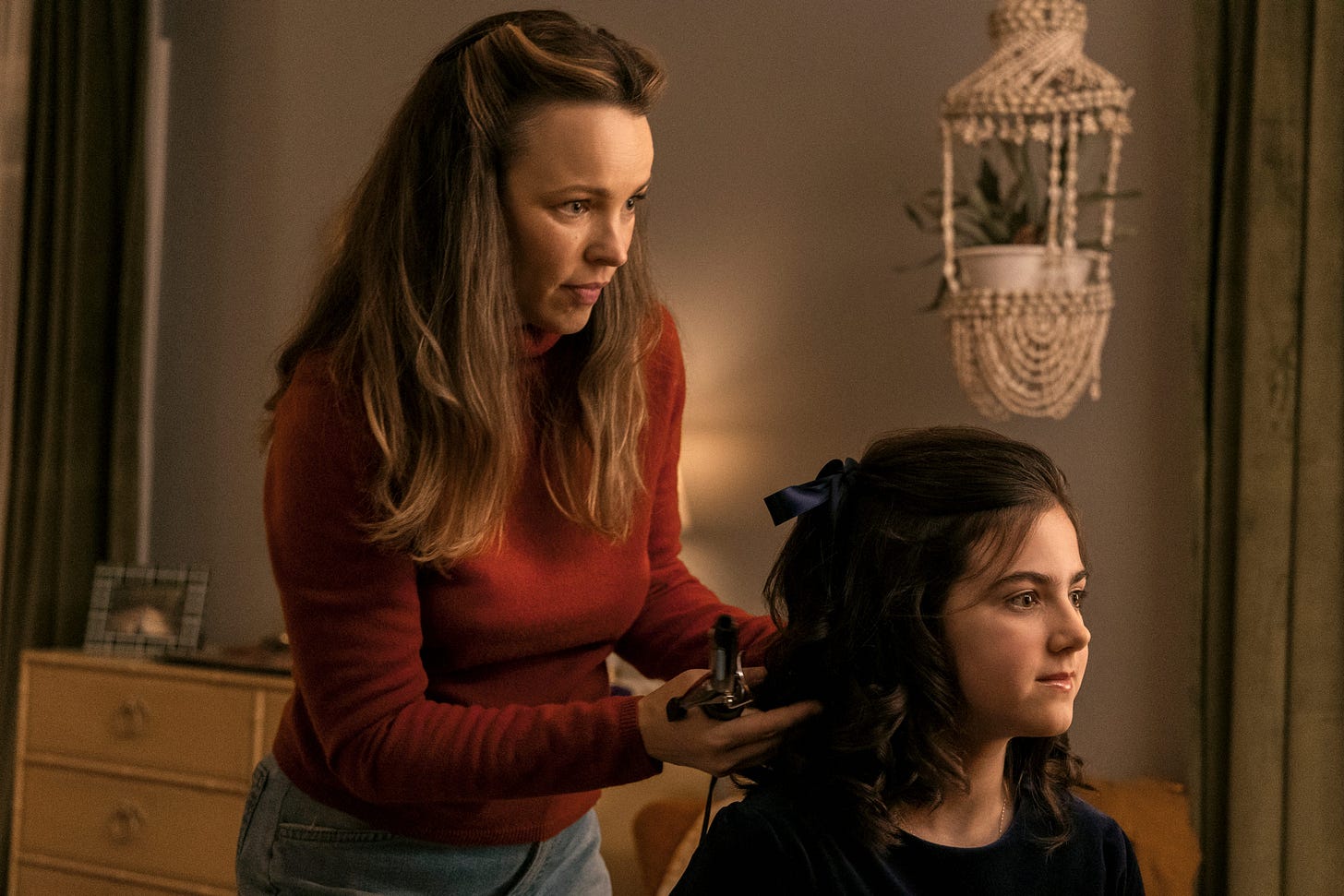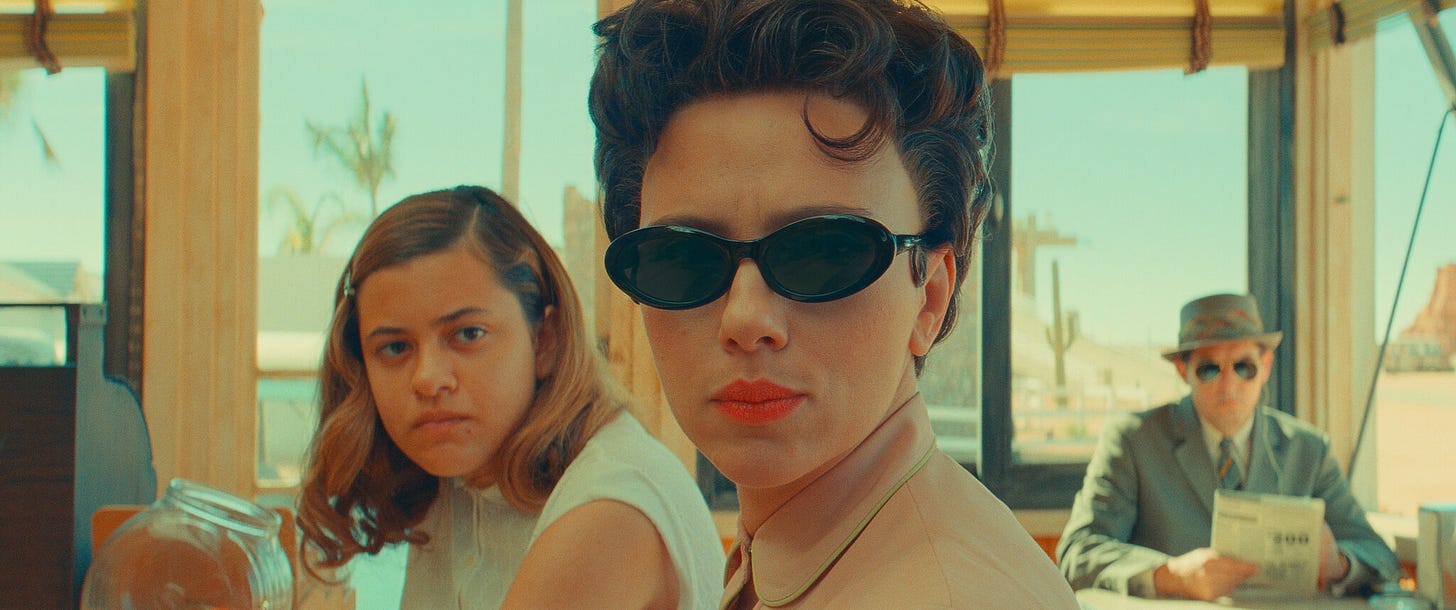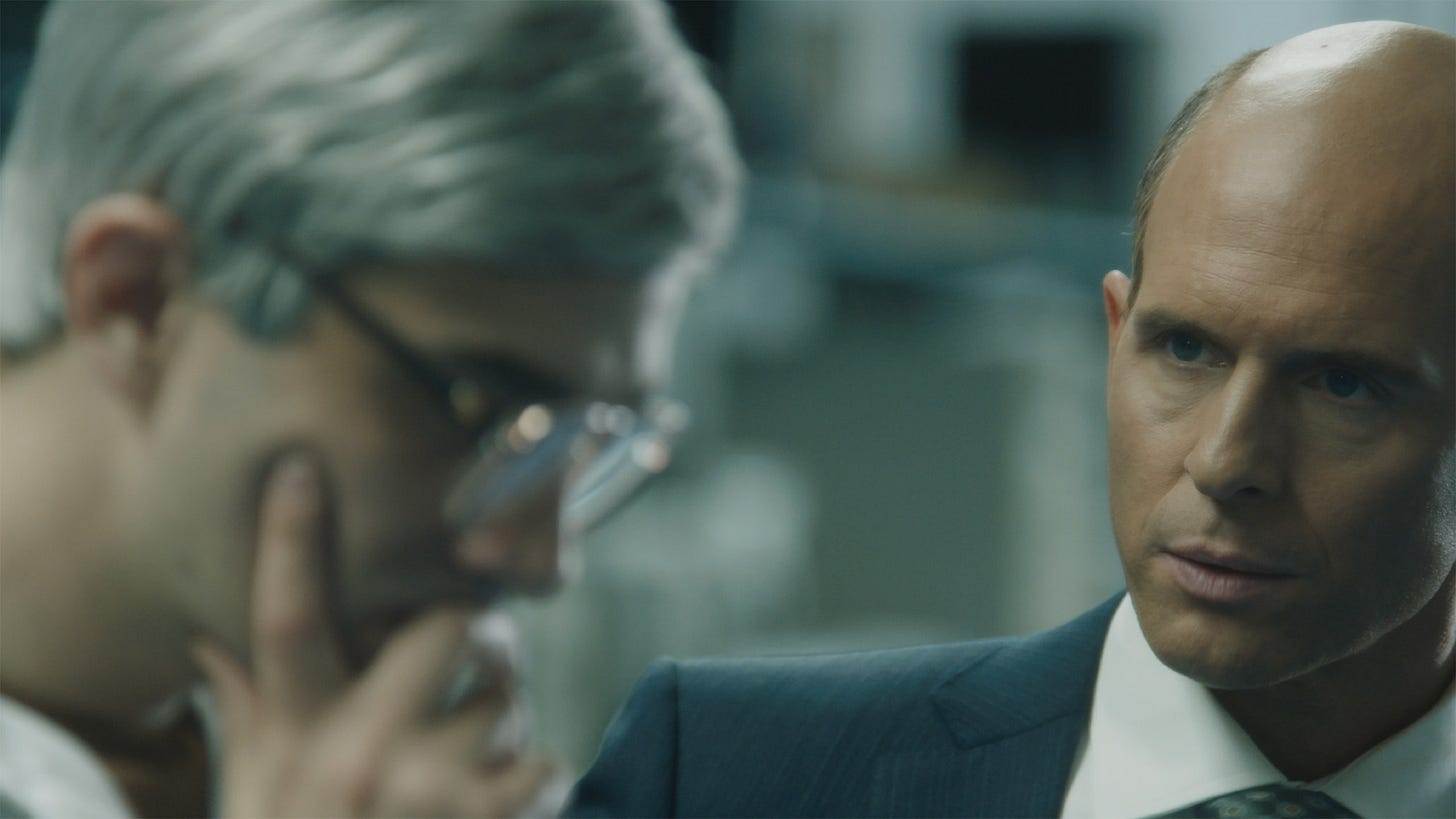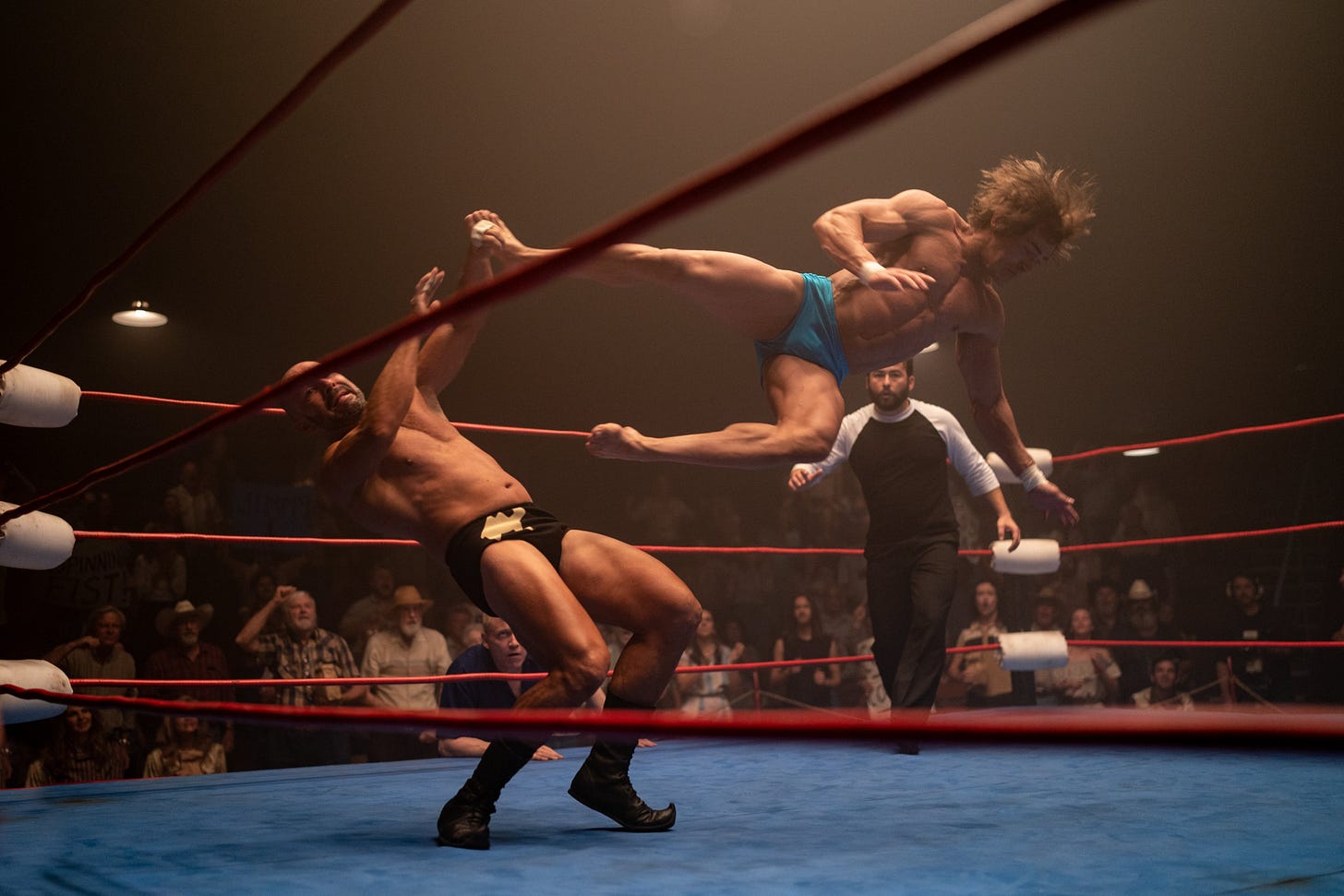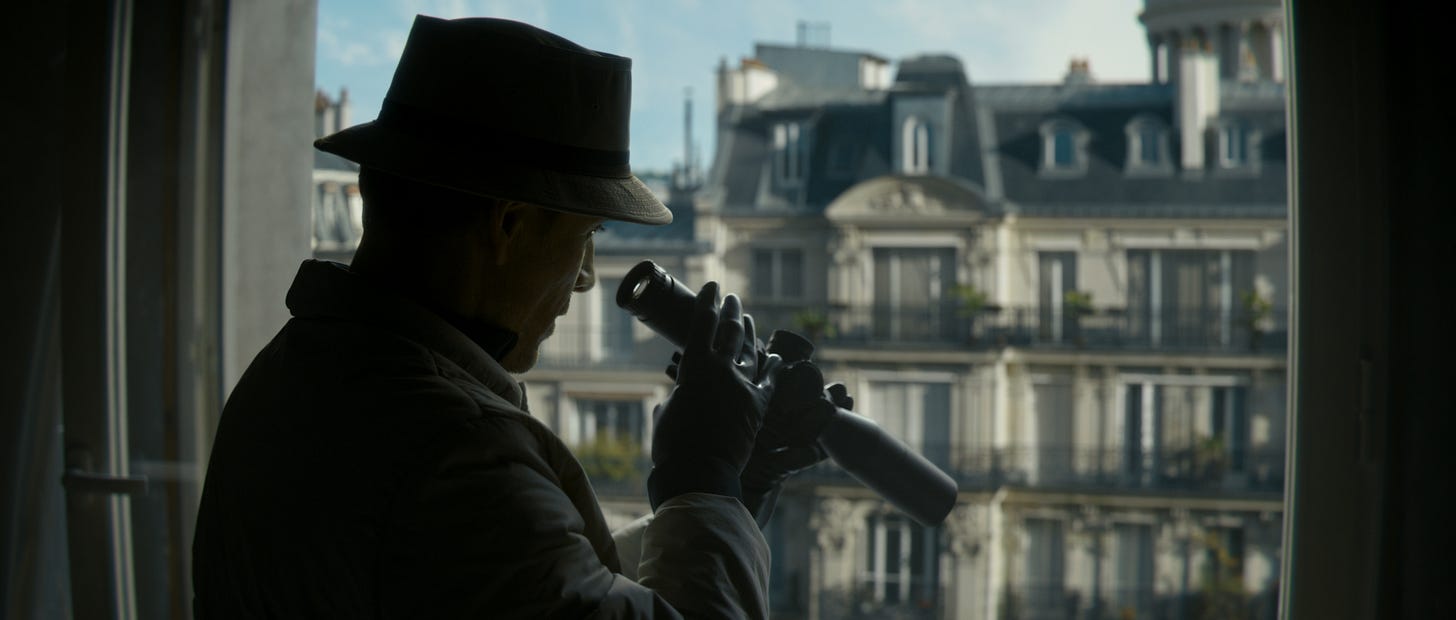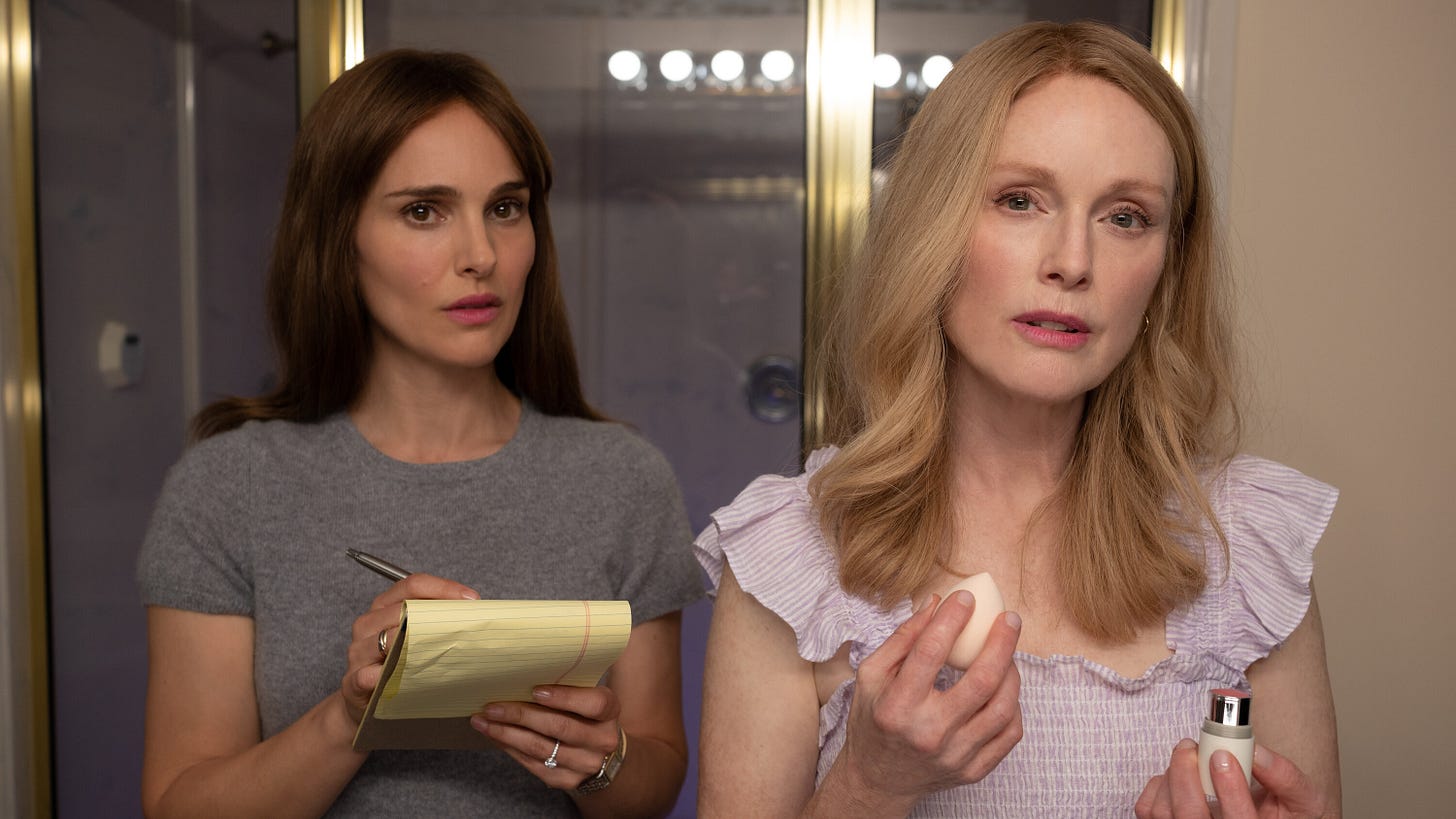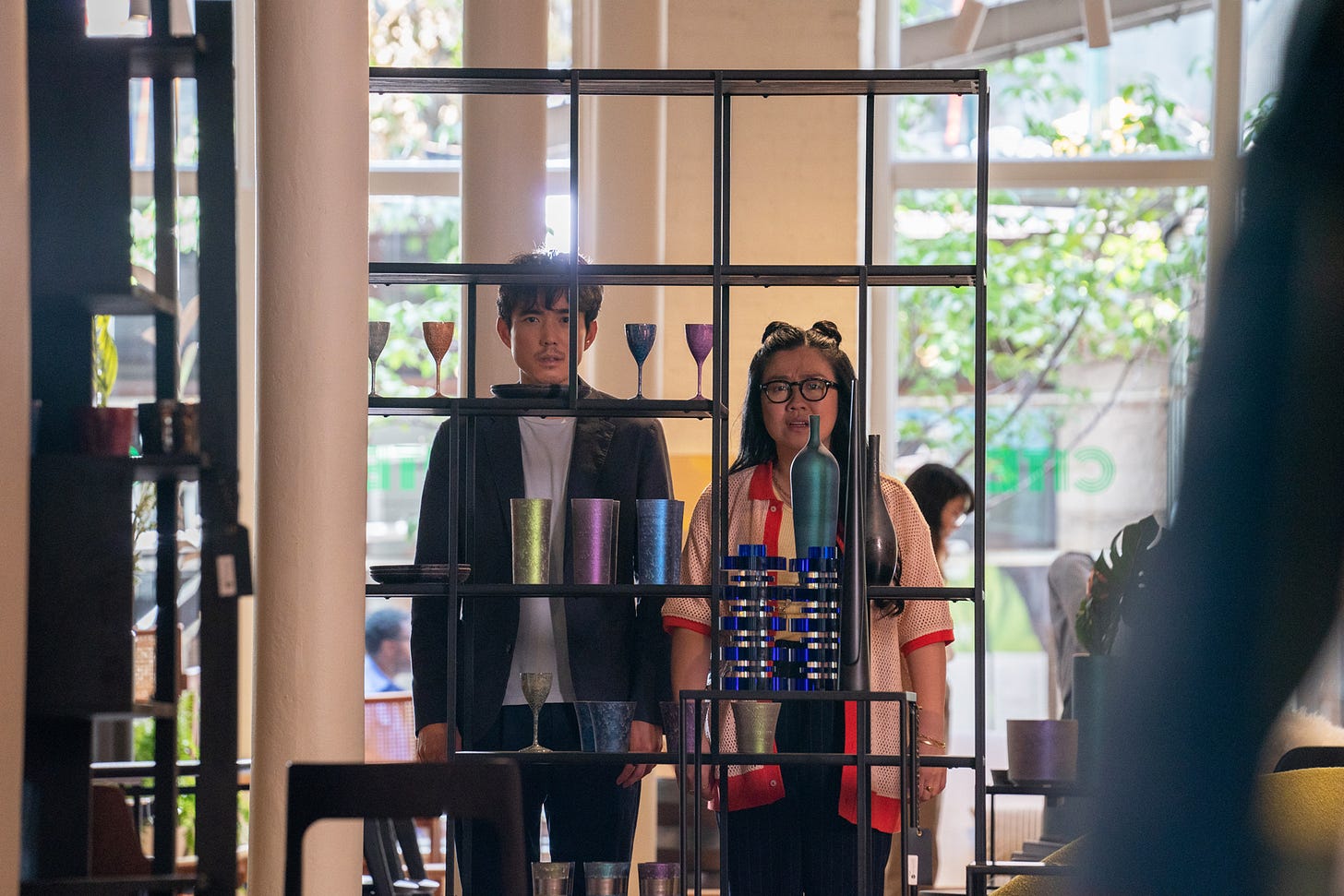Oscar on the Oscars: Year of the Snub
In a crowded year for great cinema, many of the year's best films went unrecognized.
Welcome back to Oscar on the Oscars! For those of you who’ve followed my work for a while, you know what this column is. If not, a brief introduction may be required. I began this column, talking about the awards show with which I share a name, in early 2020 at The Scarlet, the student newspaper of Clark University. After I transferred colleges, I continued it at The Wesleyan Argus. For the time being, Oscar on the Oscars now lives here on this Substack, though I am of course taking any lucrative syndication offers anyone has.
The nominees for the 96th Academy Awards, which will be awarded on March 10, were unveiled on January 23. Plenty of the best and biggest films from 2023 came away with lots of love. Three films came away with double-digit nominations: thirteen for Oppenheimer, a gripping biographical drama directed and written by Christopher Nolan, eleven for Poor Things, a darkly whimsical sci-fi bildungsroman from Yorgos Lanthimos, and ten for Killers of the Flower Moon, director Martin Scorsese’s harrowing expose of a dark episode from recent history. Not far behind with eight nominations was director Greta Gerwig’s Barbie, a fantastical exploration of the titular doll’s journey of self-actualization.
There were, as there are every year, some milestones related to these nominations. Receiving a tenth Best Director nomination for Killers of the Flower Moon, Martin Scorsese became the most-nominated living director, surpassing Steven Spielberg. John Williams, receiving his 54th career nomination for Best Original Score for his work on Indiana Jones and the Dial of Destiny, became the most-nominated living person, as well as the second-most nominated person in Oscars history after Walt Disney, who snagged 59.
Many of this year’s milestones relate to the growing diversity of the talents recognized by the Academy. The field of nominees for Best Picture includes three directed by women— Anatomy of a Fall, directed by Justine Triet, Barbie, directed by Gerwig, and Past Lives, directed by Celine Song— the most ever in a single year. Three of the acting nominees are members of the LGBTQ+ community: Colman Domingo, who is nominated for Best Actor for his performance in the titular role of Rustin, Jodie Foster, who is nominated for Best Supporting Actress for her portrayal of Bonnie Stoll in Nyad, and Lily Gladstone, who is nominated for Best Actress for her portrayal of Mollie Burkhart in Killers of the Flower Moon. Gladstone is also the first Native American actress to be nominated. It also bears mentioning that a decade after the #OscarsSoWhite movement decried the lack of diversity among nominees, the Academy’s inclusivity efforts have seemingly borne fruit. All four of the acting categories this year include non-white nominees, a sharp contrast from 2015 and 2016, where, in both years, all twenty nominated actors were white.
But amid all the positive accolades surrounding this year’s Oscars nominations, I continuously found myself frustrated and even dismayed by the names and films that didn’t get any love from The Academy. 2023 was an outstanding year for cinema, and every year, there are going to be snubs. But this year, it felt like there was a noticeably high number. In this column, I’m going to share my love for some of the year’s best films that got ignored by the Oscars. At least they’ve got this Oscar.
Films are listed in alphabetical order and are not ranked.
Are You There God? It’s Me, Margaret.
Written and directed by Kelly Fremon Craig, Are You There God? It’s Me, Margaret. adapts Judy Blume’s beloved 1970 coming-of-age novel in stunning, heartfelt fashion. Fremon Craig is no stranger to the genre, having previously made another excellent coming-of-age film, 2016’s The Edge of Seventeen. However, staging such a film with an eleven-year-old protagonist rather than a seventeen-year-old one comes with greater challenges. Seventeen-year-olds, on the cusp of adulthood, live lives more immediate and relatable to a broader moviegoing audience, coupled with the fact that Hollywood frequently casts twentysomethings in such roles. With Are You There God? It’s Me, Margaret., Fremon Craig faced the challenge of crafting a film with an eleven-year-old lead who came across as authentically youthful, yet not overly immature, with a tone that was approachable to actual children yet simultaneously nostalgic for grown-ups. She pulls it off marvelously, delivering a warm, incredibly human film that provokes both laughter and tears. Major credit is in the hands of Abby Ryder Fortson, who, as the titular Margaret, delivers one of the best performances from a child actor in recent memory. She grapples with social cliques, crushes, and the excitement and fear of looming puberty with an air of earnestness and awkwardness that transports any viewer back to their awkward tween years.
Centrally, as the film’s title reflects, Margaret faces a crisis of faith brought on by the religious neutrality of her raised-Christian mother (a radiant Rachel McAdams) and her raised-Jewish father (Benny Safdie, who, between this and his turns as Edward Teller in Oppenheimer and as Dougie in The Curse, is on a great, extremely varied run). Besides Fortson, McAdams is a particular standout, as we see her character struggle with the weight of being a perfect mother and all the work that entails, while simultaneously managing the family’s relationship with her own devoutly Christian parents, from whom she has been long estranged for marrying a Jewish man.
Barbie has (deservedly) gotten a lot of love this year for its depictions of women’s experiences that are so often overlooked in a male-dominated film industry. In a better world, Are You There God? It’s Me, Margaret. would have received similar attention for its down-to-earth, textured portrayal of the messy realities of girlhood and womanhood. Maybe Rachel McAdams could’ve even snagged a Best Supporting Actress nomination. But alas.
Asteroid City
Wes Anderson inhabits a unique position in the cinematic ecosystem. He is, nearly thirty years after his first film, an institution unto himself. He is, if not the only, certainly one of very few directors whose sensibilities are immediately identifiable by the general public. We need only look at last year’s “Wes Anderson film” TikTok trend, which saw thousands of users attempt to recreate the director’s meticulous aesthetic. (Shameless self-promotional aside: I was featured in the one Wesleyan University made. I’m the guy sitting on the bleachers 18 seconds in.)
But while everyone knows Wes Anderson’s style, it comes at the risk of ignoring his work’s real substance. Asteroid City is indeed photographed in gorgeous pastels against carefully framed postcard-ready vistas. But more importantly, it’s a deeply thoughtful, self-reflective work, a heartbreaking meditation on grief, and an interrogation of the place of fiction in society. Asteroid City is two stories in one. It is the story of a group of young inventors and their families who are quarantined in a small Southwestern town by the US military after a space alien crashes their convention. Among many other themes, it seems likely that this is Anderson’s COVID movie, inspired by the strange emotional brew of having to stay at home to stop the spread. But that main storyline is shown to be a play within the film, written by a playwright (Edward Norton) and staged by a group of actors. We meet Jason Schwartzman as the photojournalist Augie Steenbeck, then meet him again as Jones Hall, the actor playing the role of Augie in the play Asteroid City presented in the film Asteroid City.
It sounds confusing, but Anderson handles the entire affair with his signature wit and precision. Schwartzman, typically a character actor, shines as a leading man, embodying Augie with a quietly heartbreaking repressed grief as he processes the recent death of his wife all while maintaining a brave face amid the bizarre circumstances he faces. Scarlett Johansson also delivers remarkable work as his ambivalent love interest, Hollywood actress Midge Campbell. Margot Robbie makes an incredible one-scene appearance with a monologue that may just be her best work in a film this year.
Like many an Anderson film, the screenplay is filled with witty bon mots that simultaneously mean nothing and everything. One of the final scenes, without spoiling the particulars of the plot’s development, features the phrase “you can’t wake up if you don’t fall asleep,” which has stuck with me for all the months since the film’s release. On its face, it’s a simple, obvious statement. But in the context of the film, we come to realize it is Anderson’s thesis on art and storytelling itself. We want stories to make us feel, to process our grief for us. But they do not have all the answers in and of themselves. To truly experience a story, you must enter that escapist dream state, disconnect from reality, and give yourself over to the experience. Only then have you truly gained anything from it. Art can be powerful. But it requires vulnerability on the viewer’s part. Asteroid City certainly draws you in with its candy-colored shell. But once you bite into it, you realize it’s also quite substantial.
BlackBerry
2023 was a big year for what you might call the “product biopic,” films depicting the businesspeople who created a famous product. From Air, which chronicled the dealmaking behind the launch of the Nike Air Jordan to Flamin’ Hot, about the invention of Flamin’ Hot Cheetos, to Tetris, the story of the creation of… Tetris, these movies have largely been solid if unremarkable in quality, if coupled with the mild uneasy aftertaste that you’ve just spent two hours watching a commercial. In an overcrowded, stale genre, the darkly comedic BlackBerry, directed and co-written by Matt Johnson, stands head and shoulders above the crowd.
One basic structural advantage that allows BlackBerry to avoid the corporate stink of some of its peers is the simple fact that it is not a success story; it instead charts the rise and fall of a company that no longer even exists, and the flawed men who brought it crashing down. We learn that BlackBerry, the company, was born from the meeting of two contrasting minds: the technically brilliant but socially inept Mike Lazaridis (Jay Baruchel), and the brash Jim Balsillie (Glenn Howerton) who lacks technical know-how, but makes up for it in hard-nosed business acumen. Johnson, who also acts in the film as Douglas Fregin, Lazaridis’s goofy best friend and right-hand man, frames everything with a loose, mockumentary-esque style reminiscent of the similarly biting satire of Succession. While the facts of the story are the makings of a drama a la The Social Network, and indeed BlackBerry shares more than a little DNA with the aforementioned Facebook movie, Johnson elevates the story’s farcical elements to equal footing with its tragic ones.
BlackBerry’s Canadian setting, and its protagonists’ insecurity in comparison to American tech giants, is well-mined for laughs. Balsillie’s short fuse, expressed through Howerton’s profanity-filled, Ontario-accented tirades, is another frequent source of humor. A subplot regarding his obsession with hockey and attempts to acquire an NHL team is particularly riotous. But those laughs are complimented with genuine emotional insight into the tension between art and commerce and the impacts of business on personal relationships. You’ll laugh, you’ll squirm, you’ll feel a little guilty for watching it with an iPhone in your pocket.
The Iron Claw
The Iron Claw, if you haven’t seen it, requires a bit of explanation. To someone not familiar with its specifics, the basic premise of a movie about professional wrestling (a world filled with over-the-top characters) set in the 1980s (an era nearly synonymous in pop culture with bright, colorful aesthetics) might sound like a lighthearted ride. Writer-director Sean Durkin’s film, which stars Zac Efron as Kevin Von Erich, star of the real-life Von Erich wrestling family, is anything but. The Iron Claw is a beautifully made work, undeniably one of last year’s best films, but it’s also an intensely tragic, even harrowing watch.
At the film’s outset, Kevin is the only wrestler among his brothers. But their gruff, tough-love father, Fritz (Holt McCallany, in a standout turn from one of our most underrated character actors) has other plans. Fritz, born Jack Adkisson, clawed his way to success through wrestling, rebounding from a failed football career by adopting a stage name and inventing a villainous Nazi character to sell himself to midcentury middle America. Under Fritz’s encouragement, which features such subtle techniques as ranking his sons to their faces, David (Harris Dickinson) soon enters the ring. When the United States announces its boycott of the 1980 Olympics in Moscow, dashing the hopes that Kerry (a heartbreaking Jeremy Allen White) had to compete in the discus throw, Fritz nudges him to take up wrestling, too. Even Mike (Stanley Simons), the youngest brother and a sensitive musician whose lean frame starkly contrasts his muscle-bound brothers, is eventually convinced to join the family business. Soon, the Von Erichs are on top of the wrestling world. Then, the “Von Erich curse” strikes.
The film’s second half sees Kevin struck with one heartbreak after another. He begins the film with three brothers but ends it as an only child as the other Von Erichs are struck down by a mix of freak accidents and the festering mental health issues percolated by their toxic household. It’s a story so unrelentingly tragic that it’d be hard to buy if it wasn’t true. Durkin even had to tone things down from reality, writing out the youngest brother, Chris Von Erich, who also died by suicide, from the film’s story, telling Variety “it was one more tragedy that the film couldn’t really withstand.” It’s a testament to Durkin’s filmmaking that he’s able to deliver this story, which could so easily be the stuff of a monotonously grim melodrama, with great tact and humanity. Efron is the film’s true emotional core, as we feel his fear that he is fated to similar ends as his brothers, and his growing realization that he has the potential to move forward and make a life on his own terms. Though he’s been a known name ever since the days of High School Musical, The Iron Claw is an exceptional showcase for Efron’s true emotive talents, and in another year, he’d seem a shoo-in for a Best Actor nod.
The Killer
I wrote about The Killer in greater detail back in November, so this section will be a bit briefer than that for other films listed here. I don’t think it’s the best film in director David Fincher’s catalog, but considering that his filmography includes titans of contemporary cinema like The Social Network and Fight Club, second-tier Fincher still makes for a high-level film. The Killer, much like its protagonist, is, at first glance, unassuming. Much as the unnamed assassin (Michael Fassbender) appears to be an average man on the street, the film initially seems like a solidly made if not particularly ambitious action thriller about a mysterious hitman. Even on that level, The Killer is a great watch. Fincher’s precise, sharp filmmaking is in top form and the foreboding, ambient score by Trent Reznor and Atticus Ross, paired with Ren Klyce’s intense, immersive sound design all add up to make the film an engrossing sensory experience at the very minimum.
But just below the surface of The Killer, there’s so much more to unpack. In my November article, I wrote about how the film may be interpreted as Fincher’s own metacommentary on his own filmography. Fincher’s oeuvre is filled with charismatic, ultra-competent psychopaths, from John Doe (Kevin Spacey) in Se7en to Amy Elliott Dunne (Rosamund Pike) in Gone Girl. While Fassbender’s nameless hitman might seem to fit that archetype at the outset, Fincher’s direction and Andrew Kevin Walker’s screenplay expertly deflate this sense of grandeur, revealing his incompetence, ego, and ultimate impotence in achieving his goals. Many critics have noted that The Killer may also be taken as commentary on the gig economy. Fassbender’s character is, at the end of the day, a contract worker whose job consists of one-off tasks, assigned to him by a nigh-untouchable employer. Despite its quality, though, I never really expected The Killer to be a major Oscars contender. The Academy has never seemed to be particularly warm to Fincher’s tendency toward lurid thrillers, which don’t exactly fit into the long-held perception of “Oscar bait” as staid dramas. But, hey, a guy can dream, right?
May December
May December, from director Todd Haynes and screenwriter Samy Burch, is a masterfully uncomfortable viewing experience. Throughout his career, in films like Safe and Far From Heaven, Haynes has been fascinated with the dark underbelly and twisted psychology under the pristine surface of idyllic suburbia. In May December, we first follow actress Elizabeth Berry (Natalie Portman), as she meets couple Gracie Atherton-Yoo (Julianne Moore) and Joe Yoo (Charles Melton) at their picturesque suburban Georgia home. Then, we learn how Gracie and Joe first met, 23 years prior. Gracie was a 36-year-old mother of two. Joe was a seventh-grader, working a summer job alongside Gracie in a local pet store. Gracie groomed Joe into a sexual relationship. Their story became national tabloid fodder, and Gracie served time in jail, but the two remained together, and now have a child in college, with twins about to graduate from high school.
Hyper-aware of keeping up appearances and perhaps, one hopes, even subconsciously guilty, Gracie harshly micromanages everything around her, from decorations to human family members. She underhandedly compliments her daughter Mary (Elizabeth Yu) for being “brave” enough to pick a graduation dress that reveals her arms, and chastizes Joe for daring to drink a second beer at dinner. Yet this facade of precision belies a deep insecurity; Gracie often seems on the verge of tears, ready to crack at the slightest issue. Meanwhile, Elizabeth, in all her supposed research for taking on the role of Gracie in an upcoming movie, seems at risk of becoming her. By the time she’s evaluating the sex appeal of the teen actors auditioning to play Joe, we fear we may be witnessing the cycle of abuse and manipulation begin anew.
The tragic heart and soul of May December, though, is Charles Melton as Joe. Previously best known as one of the hunks on Riverdale, Melton delivers a truly transfixing and transformative performance. Despite having the body of a thirtysomething dad, Joe still moves and speaks with the awkward, inward-facing hesitant nature of a teen, a heartbreaking reminder of the trauma Gracie subjected him to. During one vulnerable moment with his son, Charlie (Gabriel Chung), the parent-child relationship even feels inverted, as Charlie must be the figure of stability for his deeply repressed father. In his free time, Joe raises endangered Monarch butterflies, allowing these fragile creatures to experience a safe maturation in a way he couldn’t. While Portman and Moore remain the film’s two leads, its most heart-wrenching moment is performed by Melton alone, as he silently sobs watching his children walk across the stage at graduation, perhaps mourning the teenage years he never got to have. Unlike the other films listed here, May December wasn’t entirely shut out of the Oscars, with Burch receiving a nod for Best Original Screenplay. Yet the snub for everyone else who contributed to the film, particularly Melton, who won several precursor awards and seemed a potential frontrunner for Best Supporting Actor, is truly dispiriting.
Shortcomings
I’ll be wrapping up this column on a briefer note, as Shortcomings is another film I wrote about in greater detail closer to its release. Needless to say, this indie dramedy, the directorial debut of actor Randall Park and written by Adrian Tomine, adapting his own graphic novel, has quietly become one of my favorite movies of the last year. In a media landscape where “representation” for minority groups so often means broad, idealized depictions, Shortcomings depicts contemporary Asian American life with a refreshing messiness. Its story, centered on acerbic aspiring filmmaker Ben Tagawa (Justin H. Min), and his relationships with his idealistic girlfriend Miko (Ally Maki) and his caustic lesbian best friend Alice (Sherry Cola) is intimate in scope but deeply realized in its humanity.
As a young, artistically inclined Asian American myself, I can say with confidence that Shortcomings made me feel a thousand times more “seen” than, say, Crazy Rich Asians or Shang-Chi. Sadly, whatever slim awards prospects Shortcomings may have had were likely doomed by the timing of its release, coming out amid the dual WGA and SAG-AFTRA strikes, which prevented anyone besides Park, the director, from promoting the film. Even without awards hype, though, Shortcomings is one of last year’s most thoughtful works and, like all the snubbed films I’ve waxed poetic about in this column, is well worth a watch.
That does it for this installment of Oscar on the Oscars. Stay tuned for my thoughts on how it all shakes out next month!





